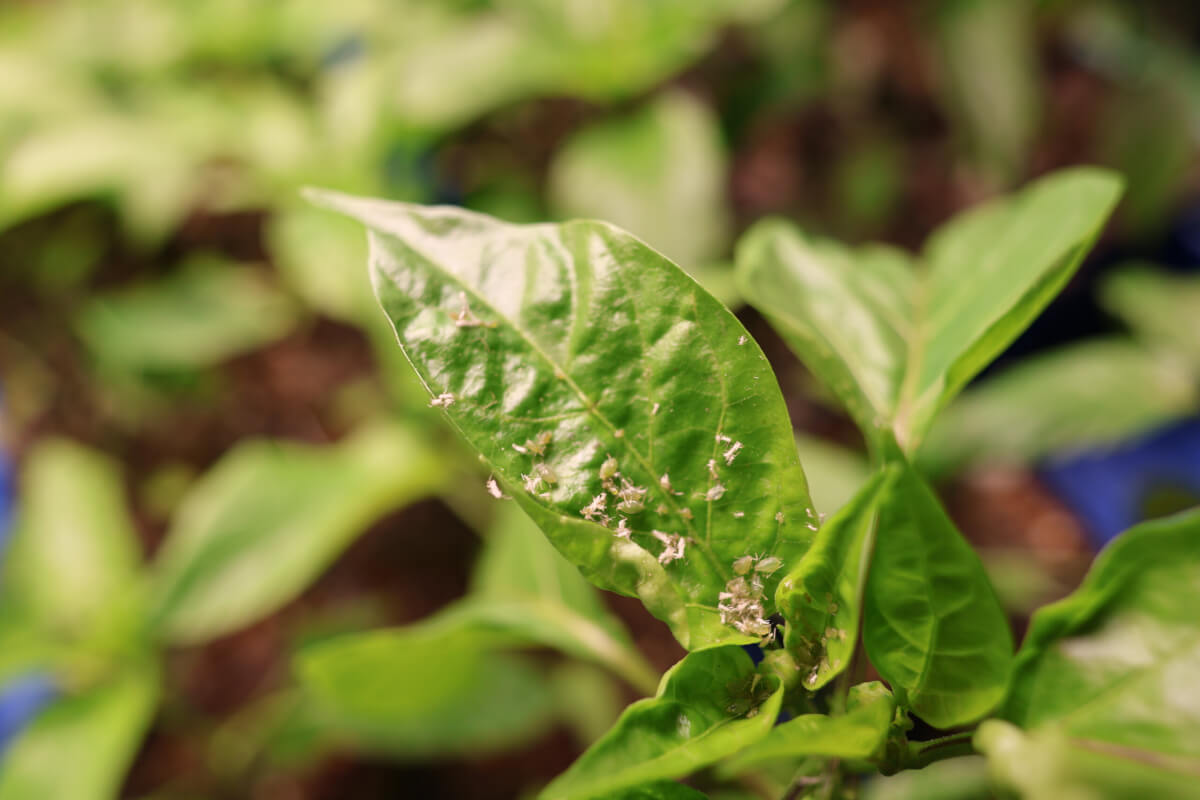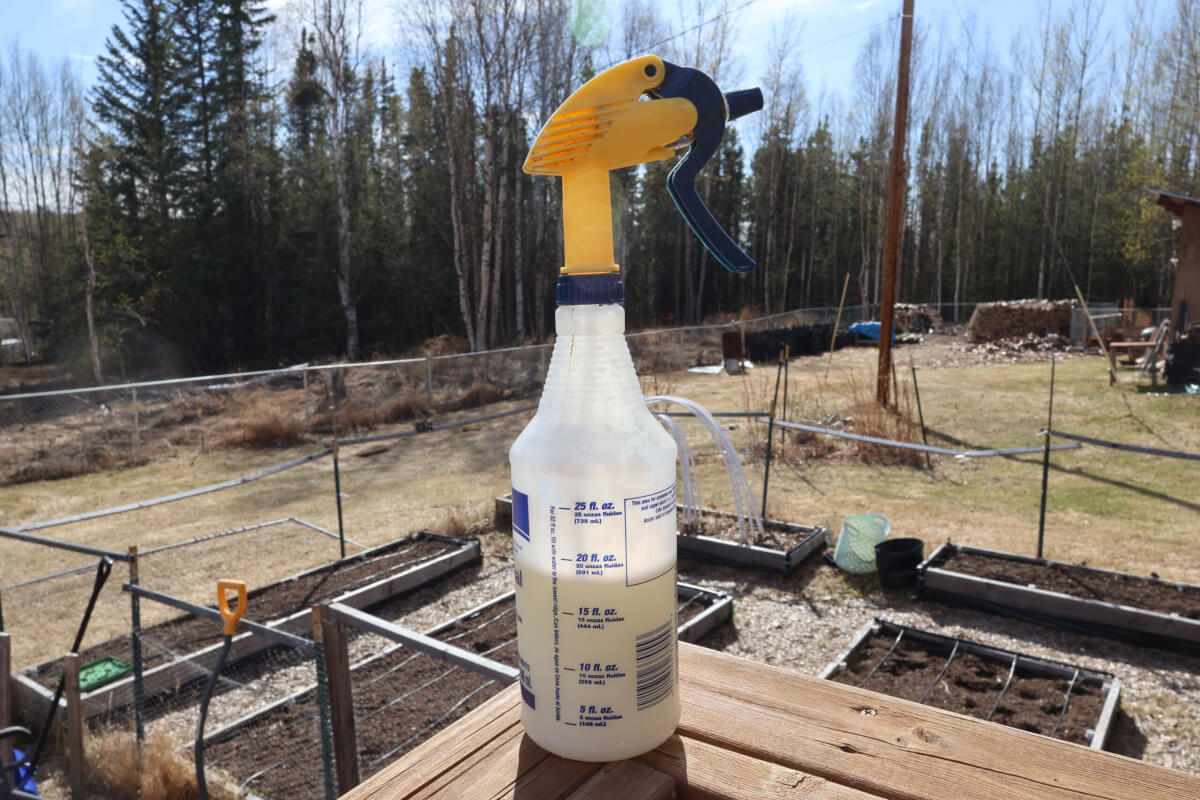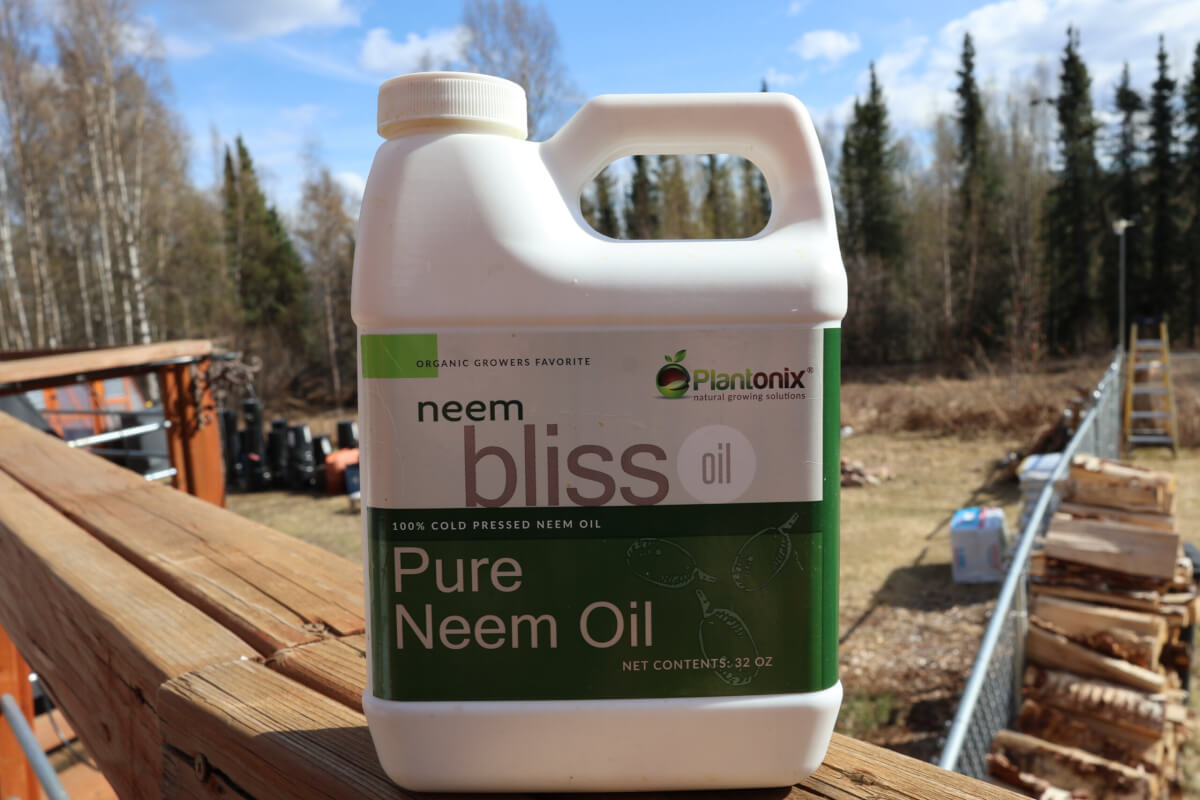Well, the writing is on the wall. It’s going to be a rough aphid season for us! Fortunately, we’re well prepared and we’ll talk about that preparedness!
Somehow, we’ve all ready picked up an aphid infestation on our peppers. We started to note some early leaf curling and upon deeper inspection, found quite a few aphids camping on some of our pepper’s leaves. Our pepper plants haven’t even been outside yet! It’s incredibly early for this to be happening, not to mention that it’s occurring indoors. The only thing we can read into that is that this season is gonna be a bit rough, by the looks of it.
As veteran pepper growers, a favorite target of aphids, we’re always well prepared for this. Our favorite intervention is neem oil and we keep it on hand at all times. It’s relatively food safe, super effective and relatively inexpensive for basically a lifetime supply. While neem oil is theoretically safe, we do always recommend washing your produce regardless of whether any pesticides were used.

The key with aphids is to hit them as early as you notice them. You’ll find that aphids have “favorite” plants (like peppers) and you’ll usually see them there before you see them anywhere else. Once the population blooms, they can become a really serious problem and be more difficult to manage. But, if you can get them early, its much easier to control the situation and ultimately be successful with your plants.
We prefer to use our neem oil in a spray bottle to make it much easier to apply to our plants. The oil usually calls for an amount of the oil and a little bit of dish soap that go into a certain amount of water. The soap helps break down neem oil’s hydrophobic properties and also acts as a surfactant. From here, we liberally spray our plants. Definitely hit the aphids, but it’s a good idea to also get under the leaves, on the stem and basically everywhere you can. We usually treat our plants a couple of times over a few days time, while also monitoring the situation quite closely. Escalate as necessary.

Neem oil’s primary active ingredient is azadirachtin. The mechanism of action is that it acts as both a repellant and generally interferes with the feeding of insects. It’s thought that there may be other active functions of neem oil as well, but they aren’t entirely known. What we do know is that neem oil has been in use as a pesticide for hundreds of years.
So, if you’re looking to be prepared for aphids, that’s how we play the game. There’s other ways you can go, too, but we’ve weathered countless aphid invasions this way. We trust it!


